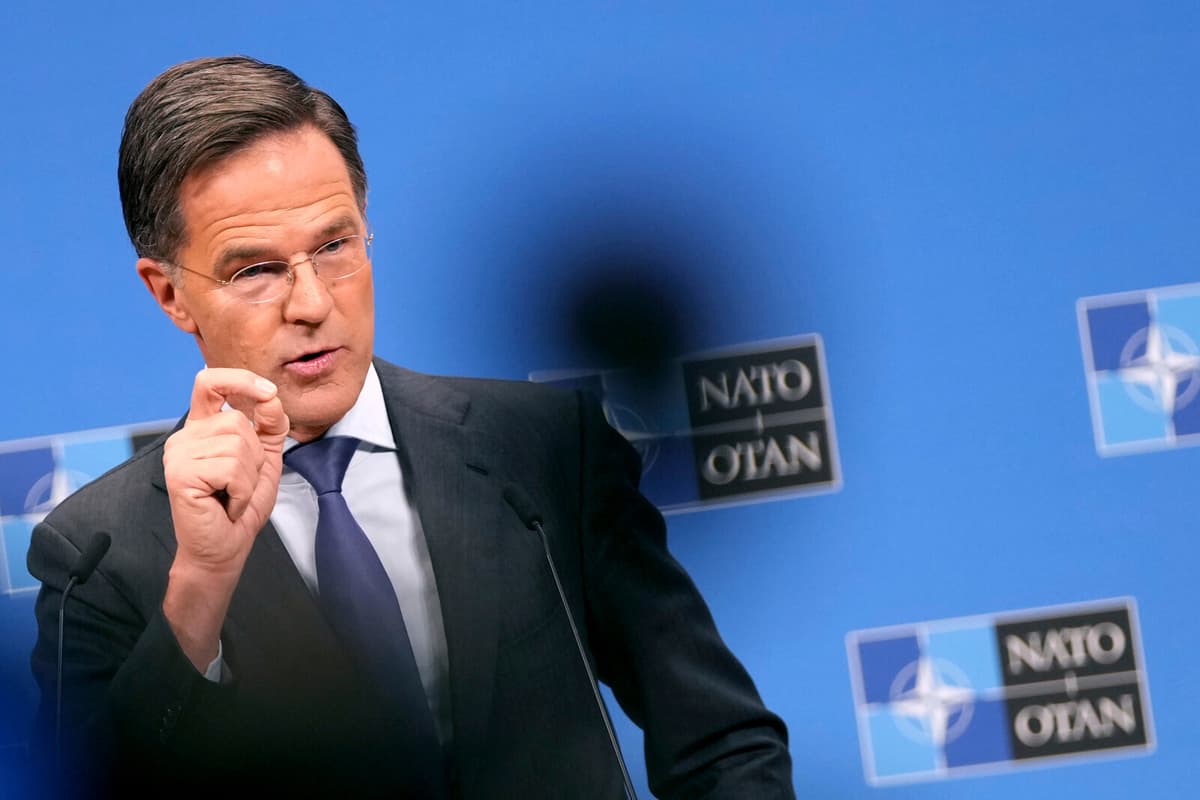The warning comes at the press conference after the NATO countries' foreign ministers' meeting in Brussels.
In exchange for soldiers and weapons, Russia provides support to North Korea's rocket and nuclear power program, says Rutte.
He does not want to go into what intelligence information he is basing himself on, but he urges the military alliance to "not be naive".
There is every reason to make this statement about nuclear technology and rocket technology flowing into North Korea, and there is therefore a risk that North Korea will use it, says Rutte.
"Serious"
Foreign Minister Maria Malmer Stenergard (The Moderate Party) says she does not have any detailed knowledge of what Russia has actually agreed on with North Korea.
But we see how there is increasingly close cooperation between Russia and North Korea, and that is naturally serious. Russia's aggression (against Ukraine) violates international law, and it is serious when other countries take their side, says the Foreign Minister after the meeting in Brussels.
NATO has long warned that Russia's President Vladimir Putin "will pay" for the military aid he has received from North Korea. However, they have not previously spoken so openly about the payment being made in the form of nuclear technology.
The message is not least directed at the USA's incoming President Donald Trump to get him not to give up the aid to Ukraine.
This development can destabilize the Korean peninsula and even threaten the USA. So Russia's illegal war in Ukraine is a threat to us all, emphasizes Rutte.
Fear of sabotage
During the NATO meeting in Brussels, the main topic of discussion was continued support to Ukraine and the growing number of sabotage and hybrid attacks that NATO countries have been subjected to, not least in the Baltic Sea region.
Rutte clearly points out Russia and China as responsible.
- Both Russia and China have tried to destabilize our societies with sabotage, cyber attacks, and energy blackmail, says Rutte.
In response, increased information exchange between NATO countries, joint exercises, and better protection of critical infrastructure are promised. Tougher measures are also promised against the Russian "shadow fleet" used to circumvent Western sanctions due to Russia's war in Ukraine.
The NATO countries have mainly discussed Russia's war in Ukraine and cyber and hybrid threats, as well as cooperation with Jordan, whose King Abdullah participated in parts of the meeting.
In preparation for the next major NATO summit, in The Hague in June 2025, there is also discussion about whether and to what extent NATO countries should raise their target of spending at least 2 percent of GDP on defense.
"I am absolutely convinced that we cannot stick to two percent. We must spend more", says Secretary-General Mark Rutte.






